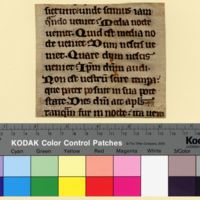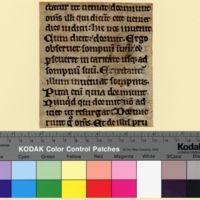Fragmenta Manuscripta
Augustine of Hippo
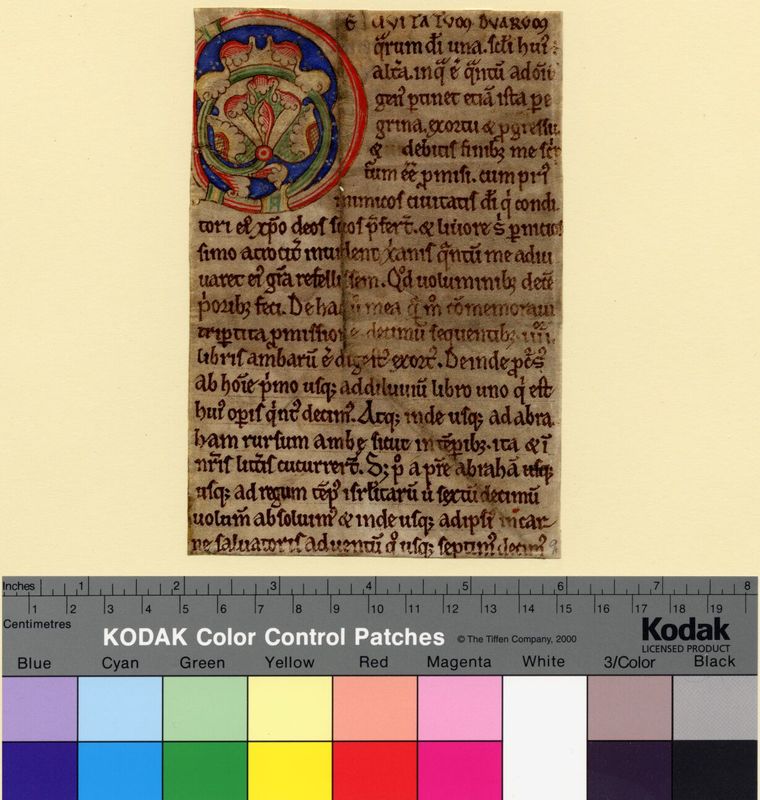
Identifier: Fragmenta Manuscripta 009
Date: 1150-1199
Contents: De civitate Dei
Language: Latin
Location: England
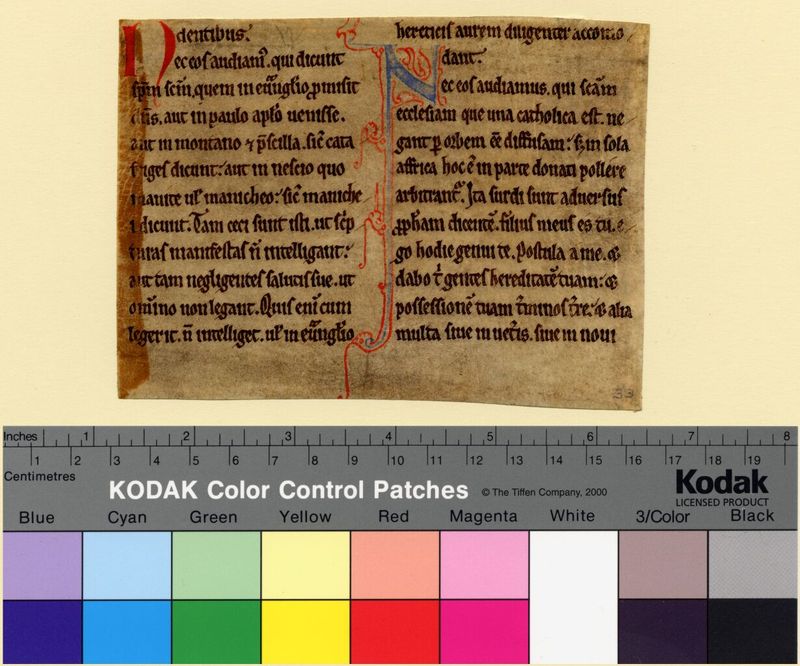
Identifier: Fragmenta Manuscripta 033
Date: 1150-1199
Contents: On Catholic Faith
Language: Latin
Location: England
Augustine (354-430) was born in Roman North Africa to a pagan father and Christian mother. Augustine converted to Christianity in 386 and was baptized by Ambrose of Milan in 387. He spent the rest of his life celebrating and promoting Christianity—and is known today as one of the Fathers of the Church. He formed a religious community, become bishop of Hippo Regius, and was a prolific writer, authoring 113 books and treatises, over 200 letters, and 500 sermons.[1]
Fragmenta Manuscripta 009 contains a passage from one of Augustine’s most famous works de civitate dei or the City of God. Set against the recent sack of Rome by the Goths, Augustine writes about the pitfalls of the pagans and the virtues of the Christians. The City of God deals with the paganism of Rome, the followers of Neoplatonism, and the philosophical interpretation of the bible.[2]
The City of God was copied for centuries after Augustine wrote it, as evidenced by this manuscript leaf from the thirteenth century that contains the last two chapters (23-24) of book xvii and part of the first chapter of book xviii. The chapters discuss the transference of Judah to the Roman Empire, the prophets, and the history of the world to the time of Christ.
Another fragment in the collection (FM 033) contains a passage that may be from Augustine's On Catholic faith. Augustine wrote this text in response to two heresies in the Catholic Church: the Manichaeans and the Donatists.
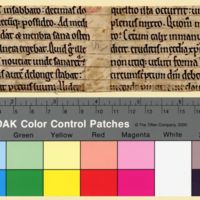
Identifier: Fragmenta Manuscripta 011
Date: 1150-1199
Contents: Augustine of Hippo, Enarrationes in Psalmos
Language: Latin
Location: England
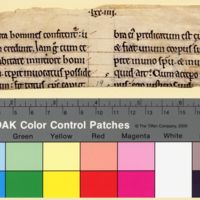
Identifier: Fragmenta Manuscripta 019
Date: 1150-1199
Contents: Augustine of Hippo, Enarrationes in Psalmos
Language: Latin
Location: England
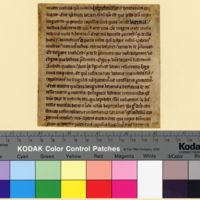
Identifier: Fragmenta Manuscripta 044
Date: 1250-1299
Contents: Augustine, Bible commentary on the gospel of John
Language: Latin
Location: England
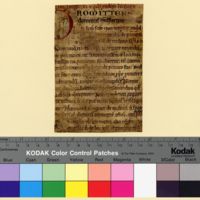
Identifier: Fragmenta Manuscripta 078
Date: 1290-1310
Contents: Augustine of Hippo, In Ioannis Evangelium tractatus
Language: Latin
Location: England?
Other texts by Augustine of Hippo.
NOTES
[1] St. Augustine, Concerning The City of God against the Pagans, translated by Henry Bettenson (London: Penguin Books, 1984), vii-xxi; see also, St. Augustine of Hippo, The Writings Against the Manichaeans and the Donatists, translated by Philip Schaff, Nicene and Post-Nicene Fathers series 1, Volume 4 (Whitefish, Montana: Kessinger Publishing Co., 2004).
[2] St. Augustine, Concerning The City of God, vii-xxi.
